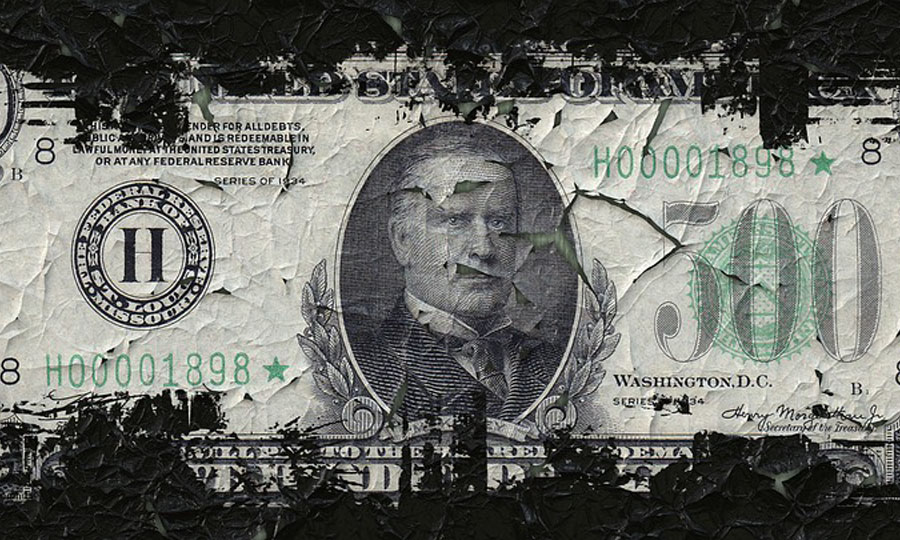
DELRAY BEACH, FL – With the chaos surrounding our economic situation today, the discussion and debate about the pluses and the minus’ of the competing economic systems of Capitalism and Socialism, have returned with a vigor.
Before we can begin the discussion, let’s define the terms. Capitalism is an economic system in which investment in and ownership of the means of production, distribution and exchange of wealth is made and maintained chiefly by private individuals and corporations. Socialism is a theory or system of social organization in which the means of production and distribution of goods are owned and/or controlled collectively or by the government. In a simplified nutshell, capitalists want less government ownership, and socialists want more government ownership.
Historically, the countries that have achieved the greatest amount of economic success, over the years and centuries, have been the countries that have embraced capitalism (ex. the United States, Japan, South Korea, Australia, to name just a few). There is a smattering of socialism mixed into these countries economic systems (ex. Social Security, Medicare etc. which represents about 20% of the system overall). The ingredients that seem to have caused that success have been the right to own private property, and the incentive to reap the benefits of your hard work and due diligence by earning and keeping the monetary benefits of the fruits of your labor. Socialism, on the other hand, is very popular among the masses, which for some reason have not had the financial success that others have gained through their labors, like in the capitalist system. The predominant socialist oriented countries of Europe and Africa, and Cuba and Venezuela in the Latin countries, with the “poster” country of disaster, Greece, are all close to or on the verge of bankruptcy. It seems that countries that espouse a plethora of government entitlement programs (giveaways and handouts), are the ones in dire financial straits. You could say that the old expression of. “There’s no such thing as a free lunch” applies to these countries except for the government “elites” who run the governments and become the wealthy class while the masses wallow in poverty.
Winston Churchill once said, “If you’re not a liberal (sympathetic to socialism) by the age of 20, you have no heart, but if you’re not a conservative (sympathetic to capitalism) by the age of 40, you have no brains”. That generalized statement by Churchill has produced some lively debate among economists and citizens of all the countries of the world.
The phrases used by proponents of each system can be summed up by the use of some terms that describe the benefits, as they see them, of the system they support. The capitalist believes that wealth in the hands of bright, successful, hard-working people (entrepreneurs) will be the incentive to produce newer and better products and services, because of the expectation of the monetary rewards they will benefit from. They believe in the “trickle down” prosperity theory as opposed to the “trickle up” poverty theory, which they claim the socialists espouse. The socialists, on the other hand, say that wealth concentrated in the hands of the wealthy capitalists, produce a society of a few rich people and many poor people with the tendency for the rich to take advantage of the less fortunate. They claim that greed will eventually be the downfall of the capitalist system.
Granted, there have been rare abuses on the part of capitalists over the years in how they accumulated their wealth, but that is the price we pay for being able to live in the most modern, advanced country in the world, the United States. Most rational capitalists believe that government can and should play a role in our capitalist system by clamping down on fraud and the exploitation of labor, but once you take the incentive away, by punishing them by over taxing them and by imposing excess regulations, from people to have the opportunity to better themselves financially by their intelligence and hard work, you kill the spirit of innovation by trying to make everyone have the same outcome in life. Our Constitution states that all of us have the opportunity to succeed , not the guarantee of success. Most of the world’s economic basket cases around the world are predominantly socialist oriented countries. I don’t think that’s what “Joe the Plumber” had in mind when he asked Barack Obama his question about taking from the producers and giving to the non-producers, through taxation? We now know that the answer Obama gave to Joe, in the 2008 campaign, that we must all “share the wealth”, had been his over riding domestic policy position during his time in office. That was one of the reasons why the “economic recovery”, under Obama over his 8 years in office, had been the worst economic recovery in modern times in the history of the U.S. Now, under President Trump, we’ve had the best economic times in decades because of his tax reduction policies and his tearing down of onerous regulations.
Margaret Thatcher, former Prime Minister of Great Britain, once said, “The trouble with Socialism is that you eventually run out of other peoples money ”. We now have a debt of over $22 trillion (and rising) without any attempt to rein it in so that our children and grand children are not burdened in the future with paying off this enormous debt. If we keep this up, who knows, we might become the next Greece.
The verdict is in, and contrary to what Bernie Sanders, Elizabeth Warren, and their fellow socialists say, capitalism, with all its warts, is the preferred economic system to bring the masses out of poverty and to make them productive citizens in our country and in countries around the world. Remember this, Capitalism rewards merit, Socialism rewards mediocrity.



Comments are closed.